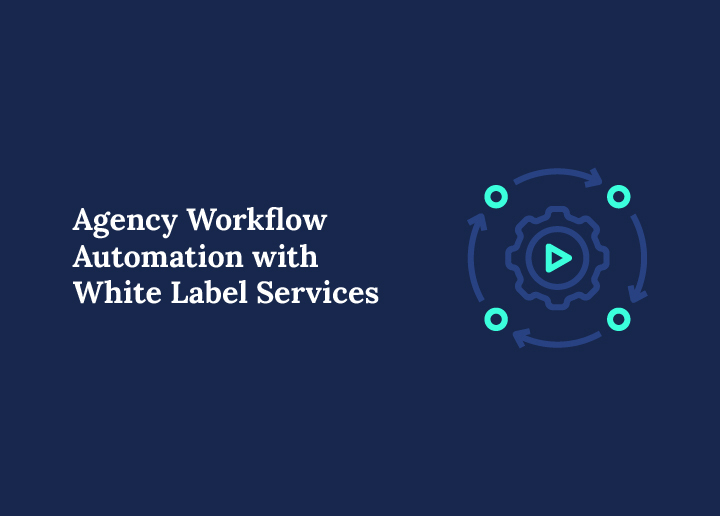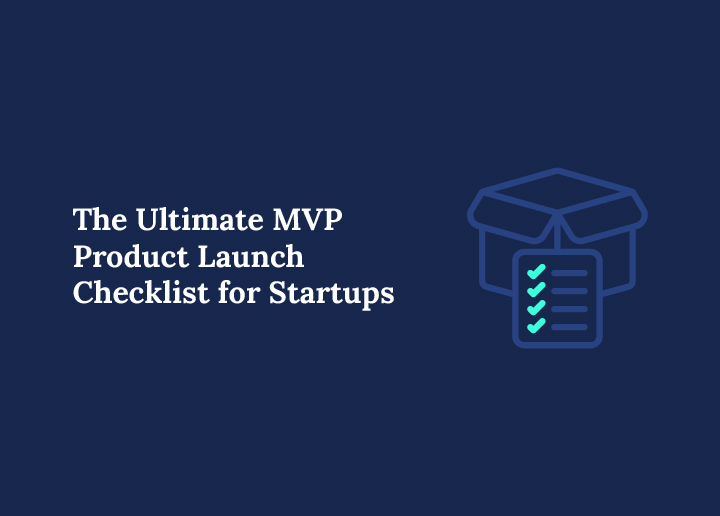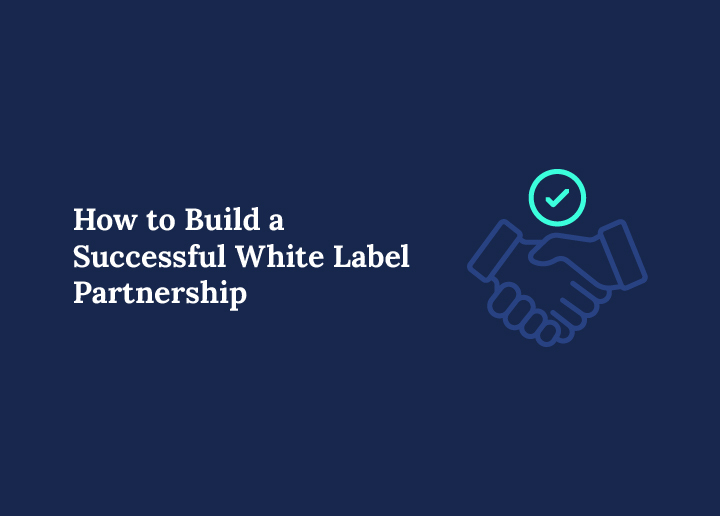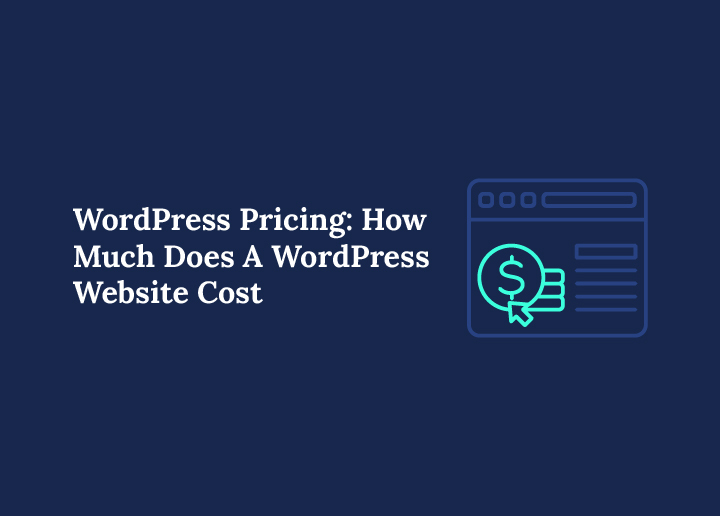Picture this: your agency runs like a well-oiled machine, projects move seamlessly from one phase to the next, clients are happy, and your team can focus on innovation, not just ticking off tasks. Sounds like a dream, right? Well, this is entirely achievable with intelligent agency workflow automation. For a WordPress agency looking to scale, the key isn’t just hard work; it’s working smarter.
By embracing automation and leveraging white-label WordPress services, you can reduce the manual grind, deliver projects faster, and maintain top-tier quality. Let’s explore how automating your WordPress development and maintenance processes can take your agency from busy to thriving.
What Is Agency Workflow Automation?

At its core, agency workflow automation involves streamlining repetitive and manual tasks using technology and specialized services. For WordPress agencies, this can include automating client communication, project management, website maintenance, and custom development.
Workflow automation helps reduce human error, improve efficiency, and allow teams to focus on high-impact tasks like strategy, creative development, and client relationships. With the right systems in place, agencies can handle more projects, meet tight deadlines, and provide better services without constantly scaling their teams.
Scale Smarter, Not Harder
Grow your WordPress agency without the extra workload. Seahawk Media’s white-label services help you automate, streamline, and scale with ease.
Challenges of Managing WordPress Development and Maintenance for Agencies
While WordPress is an incredibly flexible platform, managing multiple WordPress sites for different clients can introduce significant challenges. Some of the most common pain points include:
- Client Communication: Regular updates, questions, and feedback from clients can take up a significant amount of time. Agencies often struggle to keep up with all communication, leading to delays or misunderstandings.
- Security and Plugin Updates: Managing the security of WordPress multisites and ensuring timely updates for plugins & themes, and the WordPress core itself can be a daunting task, especially when updates come with compatibility issues.
- Customization Requests: Every client has unique needs, and customization is often required. However, managing these changes across various projects while keeping everything running smoothly is difficult.
- Manual Processes: From scheduling content updates to running performance checks, manual processes can lead to missed steps, delays, and errors.
As client expectations continue to rise, agencies often struggle to scale without compromising quality. This is where automation and white-label services come in to fill the gaps.
Know: Best WordPress Customization Services
Why White-Label Services are Key to Automation
White-label services are pre-built solutions provided by third-party experts that agencies can use to deliver services under their own brand. These services are particularly valuable for WordPress agencies looking to streamline development and maintenance workflows.
- Outsourcing Repetitive Tasks: White-label partners can handle routine but critical tasks like plugin updates, security monitoring, backups, and performance optimization. This allows agencies to offload maintenance work without compromising on quality.
- Custom Development Solutions: White-label services often offer custom development solutions for WordPress themes, plugins, and features. This means that instead of reinventing the wheel, agencies can tap into pre-built, fully customizable solutions for their clients.
- Integration with Existing Workflows: The best part? White-label services can seamlessly integrate into your existing workflow, meaning you maintain control over the project while benefiting from expert support behind the scenes.
Step-by-Step Guide to Automating Your WordPress Development Workflow
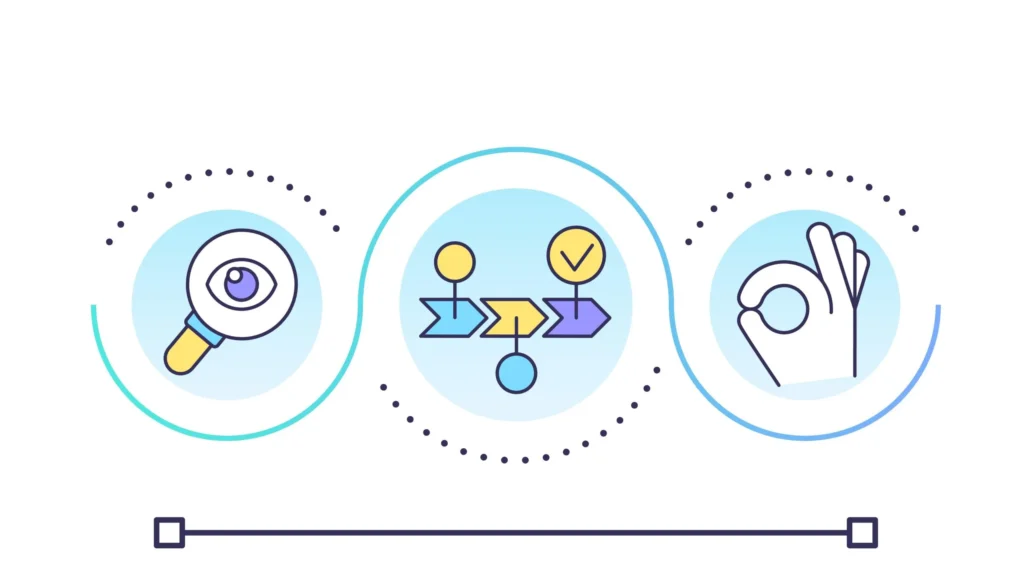
You need a detailed roadmap to optimize your agency’s efficiency and take advantage of automation. Here’s an in-depth guide on streamlining your WordPress development workflow using automation tools and white-label services.
Step 1: Evaluate Current Workflow Gaps
Before diving into automation, it’s crucial to understand where your current workflow is falling short. Identifying bottlenecks and inefficiencies allows you to target the right areas for automation.
- Analyze Routine Tasks: List all the repetitive tasks your team performs regularly, such as plugin updates, backups, security checks, and client reports. Ask your team what slows them down or feels unnecessarily manual.
- Audit Manual Processes: Review your project management systems and client communication workflows. Are there too many manual touchpoints? For example, if you’re manually tracking project status in spreadsheets or sending follow-up emails to clients, those are prime candidates for automation. That’s why incorporating AI tools for product managers is a smart move, as they help streamline workflows by automatically updating timelines, prioritizing features based on user feedback, and generating status reports to support more strategic decision-making.
- Look for Delay Points: Examine how long it takes for a project to move from one stage to another. Do you experience delays when a developer is waiting for content? Is client approval slowing down the launch of a project? Identifying these pain points can show where automation or better tools can speed things up.
- Document the Workflow: Create a flowchart of your current processes, detailing each step, from onboarding a client to delivering the final product. This will help you visualize inefficiencies and where automation can have the most impact.
Once you’ve assessed where your workflows can be improved, you’re ready to start implementing solutions.
Read: Learn WordPress Development: Tips For Beginners
Step 2: Implement Project Management Tools
Effective project management is the backbone of any streamlined workflow. By using the right tools, you can automate task assignments, client communication, and even reporting. Here are some tools that can help:
- Slack: Slack is not just a communication tool; it can be integrated with numerous project management systems and automation bots. Set up automated reminders for team members to update the status of a task or respond to client inquiries. Slack can also be used for client communication, reducing the number of emails flying back and forth.
- Atarim: Atarim is a powerful project management and client collaboration tool designed specifically for agencies working with WordPress websites. It helps streamline feedback, task assignments, and collaboration by allowing clients to leave comments on live websites visually. You can integrate Atarim with your favorite project management tools, automate reminders for task completion, and ensure all feedback is clearly documented for smooth development.
Keep Reading: How White Label WordPress Development Helps Agencies
Step 3: Outsource Maintenance Tasks to White-Label Services
Routine WordPress maintenance is vital for keeping client sites secure, up-to-date, and performing optimally. However, these tasks are often time-consuming and repetitive. Outsourcing them to a white-label service can be a game-changer for your agency’s workflow.
Here’s how to approach outsourcing:
- Plugin and Theme Updates: Automate updates to avoid manual checks and potential site crashes.
- Security Monitoring: Ensure 24/7 protection with automated malware scans and vulnerability patches.
- Backups and Restoration: Schedule regular automated backups and enable quick restoration in emergencies.
- Performance Optimization: Automate performance tests and database optimizations for faster sites.
By outsourcing these tasks, your team can focus on more value-added activities like client acquisition, custom development, and creative strategy.
Learn More: Grow Your Agency with White Label Web Design
Step 4: Streamline Custom Development with Pre-built Solutions
Custom development is often one of the most resource-intensive aspects of WordPress projects. However, you can streamline this by leveraging pre-built, white-label solutions.
- Pre-built Themes and Templates: White-label services often offer a variety of custom WordPress themes and templates. These pre-built solutions allow you to provide a bespoke design to clients without starting from scratch.
- Reusable Code Snippets: Many white-label services provide libraries of reusable code snippets for standard WordPress functionalities. This reduces development time as your developers don’t need to rebuild these features from scratch.
- Custom Plugin Development: For more complex client needs, white-label services can help by developing custom plugins that fit your client’s specific use case. This speeds up delivery since you can access expert developers specializing in WordPress.
- Automated Deployment: Streamline the deployment process using automated Continuous Integration (CI) and Continuous Deployment (CD) tools that sync code changes directly to your WordPress site’s staging or live environment. This allows for faster testing and quicker launch times.
By incorporating pre-built solutions into your workflow, your agency can deliver projects more quickly without sacrificing quality. This also allows you to take on more clients or focus on more complex, higher-revenue tasks.
Learn: Best Outsourcing Websites & Platforms to Scale Your Business
Bonus Tip: Automating Client Communication and Reporting
Automation doesn’t stop at development and maintenance. Automating client communication and reporting can further streamline your workflow, providing a better client experience.
- Automated Status Updates: Use project management tools or customer relationship management (CRM) systems to send clients automated updates on project progress. This reduces the need for constant back-and-forth emails and keeps clients informed throughout the project lifecycle.
- Automated Reporting: Many white-label services offer automated reporting for website performance, security status, and other metrics. You can provide clients with monthly or weekly reports, branded with your agency’s logo, giving them insight into how their website performs without requiring manual data entry.
Leveraging Advanced AI-Powered Automation for Agencies
As agencies scale, managing routine tasks across multiple WordPress sites becomes increasingly complex. AI workflow automation enhances WordPress by enabling teams to create intelligent systems that manage repetitive tasks and client interactions without manual effort.
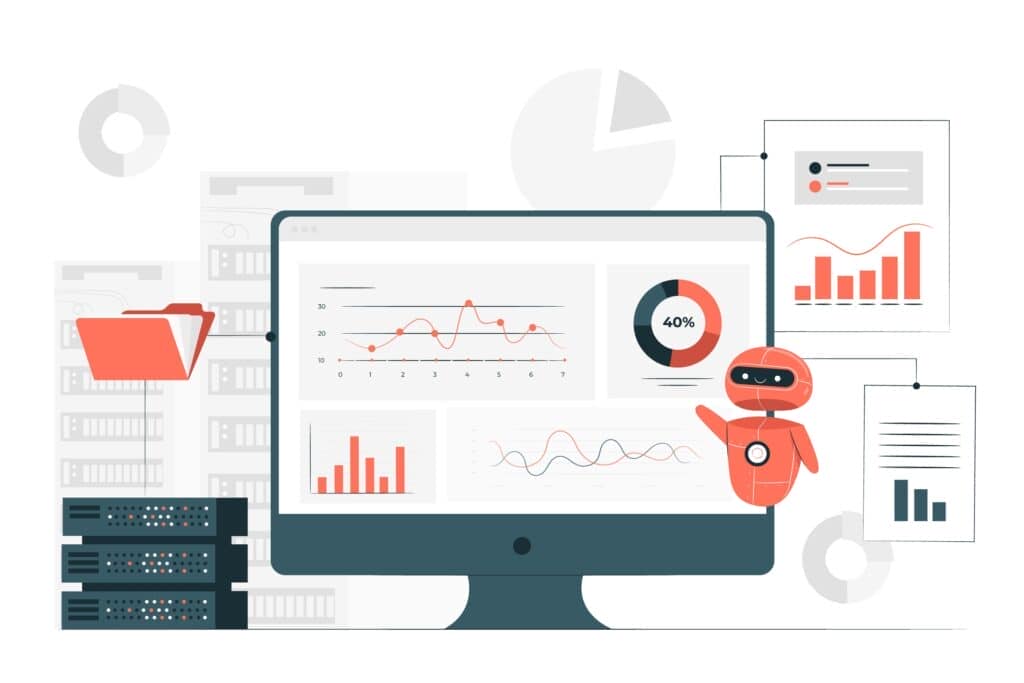
By incorporating AI-powered automation tools into your workflow, your agency can streamline operations, improve accuracy, and free your team to focus on strategic tasks. Let’s explore how to unlock advanced automation for your WordPress development and maintenance processes.
Choosing the Right AI Workflow Automation Tools
The foundation of successful AI integration starts with choosing the right tools. Not every platform can automate complex workflows like customer support triaging, analytics processing, or intelligent content recommendations. Look for tools that support visual workflow builders, conditional logic, and access to advanced AI models like GPT-based systems.
Popular platforms like Zapier, Make, or Pabbly Connect now offer AI-powered workflow suggestions and prebuilt integrations with WordPress plugins, CRMs, Google Sheets, WPForms, and custom API endpoints.
The right AI workflow automation plugin should allow your team to instantly create workflows that connect your core tools and automate data gathering across all client sites.
Integrating AI-Powered White-Label Automation Platforms
Some agencies opt for all-in-one white-label automation platforms that consolidate multiple features, project management, CRM, customer support, marketing automation, and website editing into a single, branded dashboard. These platforms often include AI automation features that let agencies automate tasks like lead follow-ups, client onboarding, and customer queries.
Platforms like Sellful or Hypestudio provide white-label access to AI-driven automation tools tailored for agencies. These tools allow you to offer advanced features without developing your infrastructure.
With a comprehensive integration library and intelligent conversation management capabilities, these platforms make it easy to manage multiple client accounts and streamline business processes.
Offering API Integrations for Custom Automation
AI workflow automation also promises customizability through API integration. If your agency uses third-party services, CRM tools, or custom systems, you can create workflows to integrate them with WordPress seamlessly.
These custom API automation allows you to process customer support tickets, sync lead data, automate reporting, or connect with external AI models for natural language processing.
Using platforms with drag-and-drop functionality and no-code/low-code support, you can create custom AI solutions that automate complex workflows without writing code. Conditional logic, webhook support, and AI decision nodes further expand what your agency can do.
Creating Advanced AI Agents and Custom Workflows
Beyond automating isolated tasks, you can now build AI agents that perform entire sequences autonomously. These agents can handle inquiries, process form data, recommend content, or manage communication flows through tools like ChatGPT, Perplexity API, or other advanced AI models.
With AI-powered automation hubs, your agency can deploy intelligent conversational AI systems that learn over time, adapting their responses and actions based on customer behavior and business rules. This enables automated yet personalized interactions at scale across multiple sites and client industries.
Accelerating Builds with Visual WordPress Builders
Many agencies use visual workflow builders and drag-and-drop WordPress themes to accelerate development and reduce the need for repetitive design work. Tools like Elementor, Beaver Builder, or Bricks offer pre-built design modules and reusable templates.
These streamline page creation and integrate well with AI content tools, allowing you to generate innovative layouts or even populate copy automatically based on SEO data. A visual workflow builder lets your team create client sites faster, enforce design consistency, and automate routine design tasks while maintaining creative flexibility.
SEO and Analytics Automation for WordPress Projects
With AI workflow automation, agencies can automate SEO tasks and analytics reporting. Tools like RankMath and SEOPress integrate with AI-driven keyword tools, enabling automated meta description generation, schema markup suggestions, and content optimization alerts.
Automating data analysis through tools like Google Analytics, Matomo, or Jetpack Stats, integrated with AI models, allows you to streamline data collection and produce intelligent, branded reports for your clients. These AI reports can include performance insights, recommendations, and trend summaries, helping your agency deliver more value without additional effort.
Security Automation and AI Monitoring for WordPress Sites
Security is another critical area where AI-powered automation excels. Modern WordPress automation plugins like Wordfence or MalCare now integrate AI features that detect unusual patterns, block malicious traffic, and generate automated alerts in real-time. These tools can learn from global threat patterns and apply intelligent rules to each client’s site.
By automating malware scans, firewall configurations, and vulnerability patching using AI-driven tools, your agency can ensure faster response times and proactive protection across all managed sites. Pairing this with automated backup and restore workflows further secures your client portfolio with minimal manual oversight.
Also Read: How AI Revolutionizes WordPress Development
How White-Label Maintenance Services Ensure Long-Term Client Satisfaction
Routine maintenance ensures client websites are secure, updated, and optimized for performance. However, these tasks can be time-consuming, and neglecting them can lead to security vulnerabilities, poor performance, and, ultimately, unhappy clients.
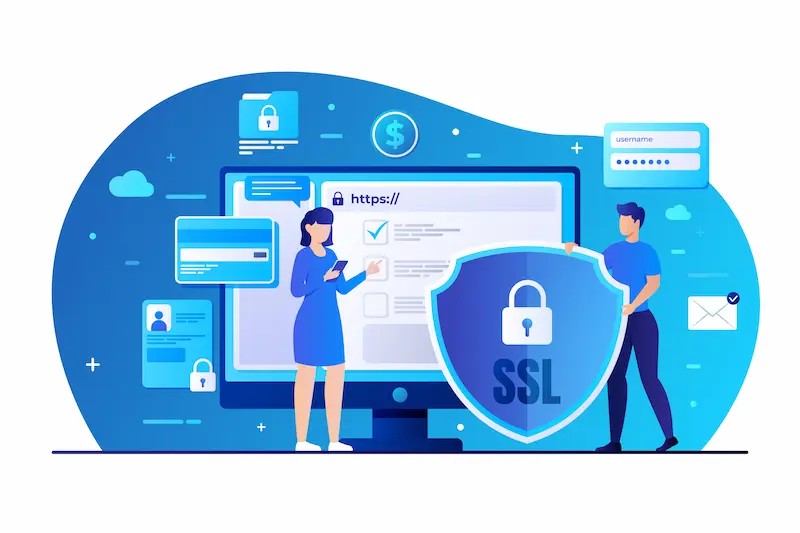
By automating maintenance with white-label services, agencies can:
- Ensure Timely Updates: White-label partners monitor updates for plugins, themes, and WordPress core, ensuring that everything stays secure and functional.
- Optimize Performance: Regular performance monitoring ensures that websites are running fast, providing a better user experience for visitors.
- Maintain Security: White-label services offer security monitoring and backups, reducing the risk of downtime due to cyberattacks or server issues.
With regular maintenance tasks handled by experts, your agency can focus on building stronger relationships with clients, ensuring long-term satisfaction and retention.
Find: White-Label Agreement: Know Everything for a Successful Partnership
Automating the Onboarding and Client Support Lifecycle
Client onboarding and support are two of the most time-intensive phases in any agency relationship. Automating these stages can significantly reduce repetitive tasks, improve consistency, and deliver a more polished experience for every client.

With AI-powered automation, agencies can streamline standard business processes, enhance responsiveness, and maintain a high standard of service across multiple WordPress sites.
From collecting client information to managing support tickets, AI workflow automation represents a decisive shift in how WordPress agencies handle communication, documentation, and task assignments.
AI-Powered Client Onboarding Workflows
Traditional onboarding often involves manual emails, repetitive follow-ups, form-filling, and scattered documentation. With agency workflow automation for WordPress, you can implement intelligent AI workflows that instantly create workflows triggered by specific client actions, such as signing a contract, completing a form, or requesting a service.
Using a visual workflow builder, you can set up conditional logic to automate tasks like sending welcome messages, provisioning a new WordPress site, collecting project requirements, and assigning internal roles. These AI-powered workflows help ensure no detail is missed and clients receive a professional, consistent experience from day one.
Many agencies now choose AI workflow automation tools that integrate CRM systems, project management dashboards, and Google Sheets. This level of complete AI integration allows agencies to automate data gathering, extend WordPress capabilities, and eliminate the need for back-and-forth emails.
Automating Routine Client Queries with Conversational AI
AI automation is not limited to backend processes but can significantly improve client-facing support. By deploying intelligent conversational AI agents on your website, you can automate customer support, process inquiries in real-time, and reduce the workload on your human team.
These AI-powered chatbots can understand client queries, reference documentation, escalate complex requests, and even integrate with ticketing systems. You can create custom AI solutions tailored to your agency’s workflow with multiple AI models. These agents are beneficial in handling routine tasks such as plugin recommendations, billing questions, or project status updates.
Advanced AI workflow automation plugins for WordPress now include multiple chat widget positions, language processing action nodes, and the ability to handle customer inquiries automatically across numerous sites. This gives your agency round-the-clock support coverage without hiring additional staff.
Read More: Best AI WordPress Themes: Free & Premium
Branded Reporting Automation and SLA-backed Performance Updates
Client satisfaction often depends on transparent communication and timely reporting. Instead of manually compiling performance summaries, uptime reports, or SEO insights, agencies can now automate data collection using AI-driven tools. These tools integrate seamlessly with Google Analytics, SEO optimization platforms, and performance monitoring services to provide automated data collection.
You can configure your AI-powered automation hub to generate custom-branded reports on a recurring schedule. These reports can include security scans, traffic insights, keyword rankings, and performance audits, all tailored to your client’s needs and branded with your agency’s logo.
Further, you can tie these reports to SLA-backed performance updates, giving clients peace of mind and ensuring accountability. This level of advanced automation saves time and boosts client trust and retention by keeping them informed with minimal manual effort.
Scaling Your Agency Without Scaling Your Team

One of the agencies’ biggest challenges is growing their client base without overwhelming their team. White-label services allow agencies to take on more clients without increasing internal headcount.
At Seahawk, we offer white-label WordPress development services that empower agencies to scale without the burden of expanding their teams. From routine tasks like plugin updates, security monitoring, and backups to custom WordPress development, our white-label services ensure your agency can take on more projects while maintaining high-quality standards.
During peak periods or large projects, our white-label solutions allow your team to focus on strategy, client relationships, and creative work while we handle the technical, repetitive tasks in the background. This enables your agency to scale up or down based on demand without the financial strain of hiring additional full-time employees. With Seahawk as your trusted partner, you can grow your WordPress agency confidently, knowing that our team is behind the scenes, ensuring seamless service delivery.
Explore: How to Offer Premium WordPress Services Without Expanding Your Team?
Conclusion
Scaling a WordPress agency efficiently isn’t just about working harder; it’s about working smarter. By incorporating automation tools and leveraging white-label services, you can streamline your processes, save time, and ensure steady growth without overloading your team. White-label services, like those offered by Seahawk, allow agencies to handle more clients and projects while maintaining top-notch quality across the board.
Whether routine maintenance or custom development, white-label solutions provide the flexibility to scale your agency without additional full-time staff. This frees your team to focus on strategy, creativity, and building stronger client relationships. Your agency can grow confidently and efficiently with Seahawk as your white-label partner.
FAQs About Agency Workflow Automation
What is AI workflow automation, and how can it benefit WordPress agencies?
AI workflow automation uses artificial intelligence to streamline repetitive tasks, manage routine processes, and reduce manual input. This means automating everything from site maintenance and client communication to reporting and CRM updates for WordPress agencies. It helps boost productivity, maintain quality across multiple sites, and scale services without increasing team size.
Can AI-powered automation tools integrate with existing WordPress workflows?
Yes. Most AI workflow automation plugins are built to integrate seamlessly with WordPress. These tools often include visual workflow builders, drag-and-drop interfaces, and support for custom APIs, allowing you to incorporate them into your current automation workflows without disrupting your agency’s structure.
How do white-label services enhance workflow automation for agencies?
White-label services enable agencies to automate tasks like plugin updates, security monitoring, backups, and reporting, all under their brand. Combined with AI-powered automation, these services let agencies manage higher volumes of work efficiently, offering clients top-tier support without increasing in-house staffing.
Is it possible to automate client communication and support using AI?
Absolutely. With AI-powered automation hubs, you can deploy intelligent conversational AI to handle customer support, lead qualification, and ticket triaging. You can also set up automated status updates, branded reports, and behavior-triggered messaging that ensures clients stay informed without burdening your team.
